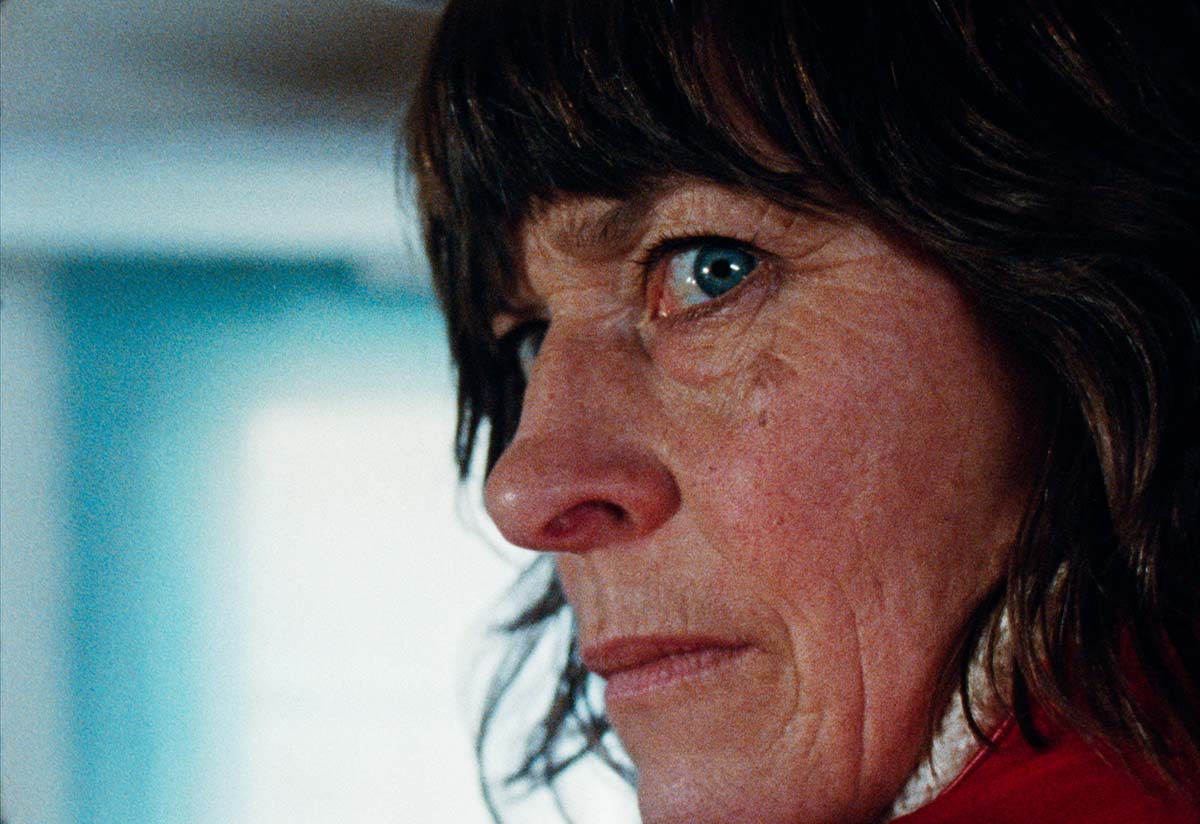“Bait,” British filmmaker Mark Jenkin’s breakout feature, could well be considered a horror movie. Set in a quaint little fishing enclave off the Cornish coast, where the ship decks are rickety and the townhouses’ whitewash ever-peeling, the knotty fear of loss is ever-present: of history, of possession, of tradition, of heritage, of liberty. It manifests formally in the deep chiaroscuro of Jenkin’s monochrome images, shot on 16mm film, richly textural, and ever cast in shadow; in the distorted sound mix, voices are heard as if captured through a shoddy synthesizer, like painful memories catching up to the present.
In the same instance, “Enys Men” could too be called a horror, far more explicitly so, if one is inclined to confine it to a genre. A quick note: “Men,” as Jenkin emphatically affirmed at the premiere in Cannes earlier today, is pronounced more like “Mane,” the title being the ancient Cornish name for the fictional island on which the movie is set. It’s April 1973 and said island is an old miner’s spot, home to ramshackle mines sodden with rot and presumably witness to plenty of shipwrecks.
READ MORE: Cannes 2022 Preview: 25 Must-See Films To Watch
We arrive with one of the few wide shots Jenkin keeps in his back pocket, before a slow-zoom into our subject, a woman unnamed on-screen but identified in the credits as The Volunteer (a tremendous Mary Woodvine). We meet her shuffling around in an old-timey cottage, the only structure as far as the eye can see. She has something of a green thumb: as far as we can tell, her only purpose is to keep tabs on a blossoming flower patch, writing up stringent daily notes on soil samples (for the most part, a pencil-scrawled ‘no change’). They’re framed with eerie, cautionary villainy from the off — more appropriate of a slobber-mouthed alien than a soon-to-be bouquet, you’d think. And so the dread begins.
“Enys Men” carries through the maritime sensibilities Jenkin established with “Bait” and, indeed, across his prior visual works, but doubles down on the creep factor, bringing folk-freak influences into the fold. Think “The Wicker Man,” with its foreboding sense that nature and its adherents simply aren’t up to any good. And, with its subject in solitude and our wary invite into her unraveling psyche, one will no doubt jump to “Repulsion” — this compounded by the Satanic Panic of it all, and Jenkin’s Polanski-esque adherence to tactile close-ups. It still feels like something of a fool’s errand to try to pack this into a genre; on the other hand, it would be stuffy and pretentious to step around the obvious.
The first third burns as slowly as a bit of wet rope. Little happens: we follow The Volunteer on her day-to-day, the soundscape a mix of glitchy crackles, foreboding strings, and the gentle crash of sea against rock. That it’s shot in such a captivating manner makes the banal interesting, even gorgeous — when Jenkin comes close to her little crank-operated radio, you see the dust hugging the inner crevices of its speakers, the rippling paint cracks, the rough fadedness of well-handled company. By dint of her isolation, there’s vanishingly little dialogue, aside from some two-way radio chatter at the beginning, where The Volunteer tells a fellow that she enjoys her seclusion. It’s obviously self-imposed, punishment by way of a geographical straitjacket; as it comes to pass, this woman has her fair share of ghosts. (And yes, the metaphor is eventually literalized, albeit with creepy verve.)
There isn’t a conventional act structure, and you’d be hard-pressed to identify plot beats or stringent narrative. It is, however, more than just A Mood: the witchy atmosphere Jenkin conjures is spine-tinglingly devilish, the poetic manifestation of the subject’s deep grief, ever-ambiguous and frosty, taking on the aching melancholy of loss. Without spoiling too much, one of the aforementioned spectres who eventually comes to play is a teenage girl who could be interpreted as The Volunteer’s daughter or, indeed, a younger version of herself. Whatever the case, grave sorrow mixes with the salty Cornish air. As Jenkin centered on the rampant, deleterious nature of gentrification in “Bait,” evoking a loss of community to be grieved, here the sorrow is all the more personal. The present trend of elevated horror be damned: this is how you do it. [A-]
Follow along with all our coverage from the 2022 Cannes Film Festival.





